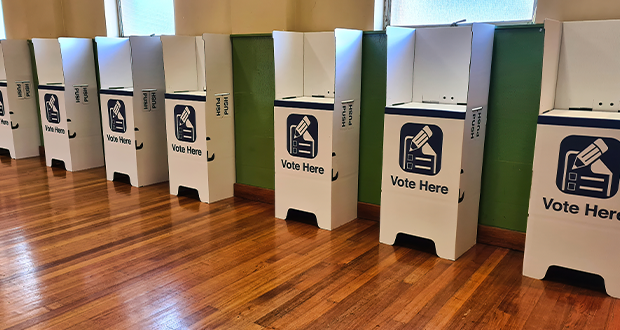Dementia Australia (DA) is asking the families, carers and doctors of those living with dementia to start the conversation about voting in the upcoming referendum.
DA chief Maree McCabe AM said each family should make a decision depending on their relatives' individual circumstances, and carers can help support them through that process.
"It may be that someone needs support to vote, for example, being reminded to attend their local polling place on the right date or helping them arrange a postal vote or to attend an early voting centre,” Ms McCabe said.
There are information sessions available to aged care workers, carers and family members offering advice on how to help someone with dementia understand why they need to consider their vote.
Aged-care advocate Gwenda Darling, who lives with Behavioural Variant Frontotemporal Dementia, is encouraging polling staff to be patient and remind voters with dementia of the importance of the vote at hand.
"Many people living with a dementia diagnosis continue to lead functional lives contributing to society," she said.
"Clear signage, a small suitably lit accessible area with timely assistance, and consideration of noise levels would make a significant difference at polling stations.
"As would a clear, concise, explanation of what is required to ensure a formal vote and reassurance if a mistake is made a new form to be issued."
Those with severe dementia who no longer understand the meaning or significance of their vote can be removed from the electoral roll by completing an objection form with a signed medical certificate attached.
More information on how to determine whether someone with dementia can vote in the October 14 referendum can be found on the Australian Electoral Commission (AEC) website.
Do you have an idea for a story?Email [email protected]
 Aged Care Insite Australia's number one aged care news source
Aged Care Insite Australia's number one aged care news source

